Representing the French demi-brigades for this campaign is not straightforward. Each demi-brigade consisted of 3 battalions, each of which consisted, on paper, of approximately 1,000 men. That explains why an early scenario like the Pyramids has such large units. However, by 1801, which is the phase of the campaign which I'm interested in, the battalions were reduced in strength. The GdB scenarios don't state how many battalions are in each demi-brigade and presumably the unit strength is a composite figure. The battalion structure was 1 grenadier and 8 fusilier companies, but the latter were reduced to 4 in 1799 to take account of casualties. My this 36-figure unit I have one stand of grenadiers and five of fusiliers, and this is clearly no attempt to replicate the individual battalions but rather to have something that looks good. One could, I suppose, have two stands of grenadiers and four of fusiliers, which might actually be more accurate. Each of the three battalions carried its own flag, so you then need to decide how many flags to allocate to your demi-brigade unit. I decided to give three flags to the larger units and two flags to the smaller one. Again, there wasn't that much thought behind that decision, other than the fact that if you give everything 3 flags you need a lot of standard bearer figures and to buy those you'll probably end up with left-over officers etc. That said, I understand that the third battalion of the 69th was on garrison duty during 1801, so this demi-brigade should in fact only have two flags. Never mind...the GMB flags are so good is seems a shame not in include as many as possible.
36 figures. Painted May-July 2017. Flags by GMB.
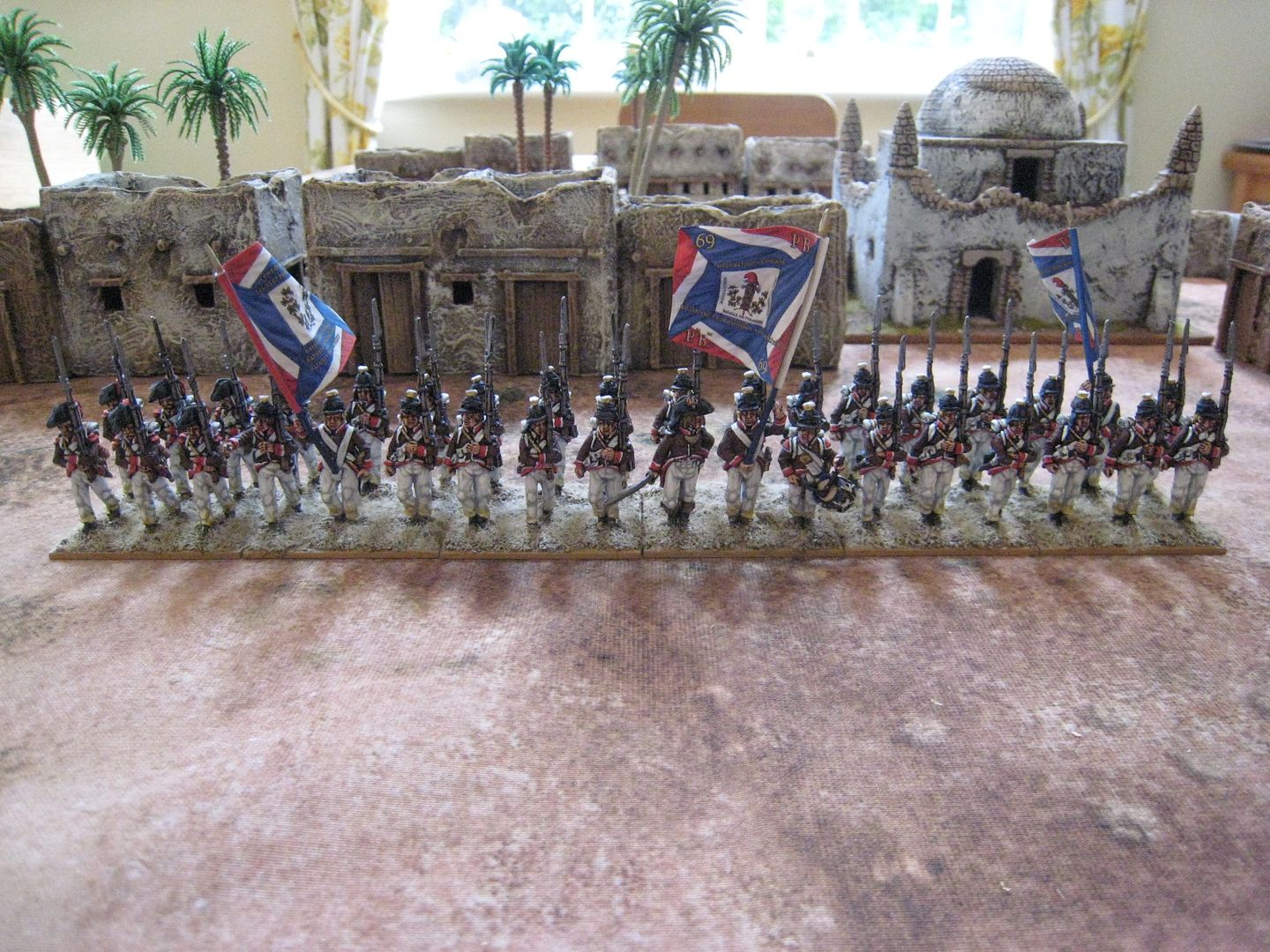
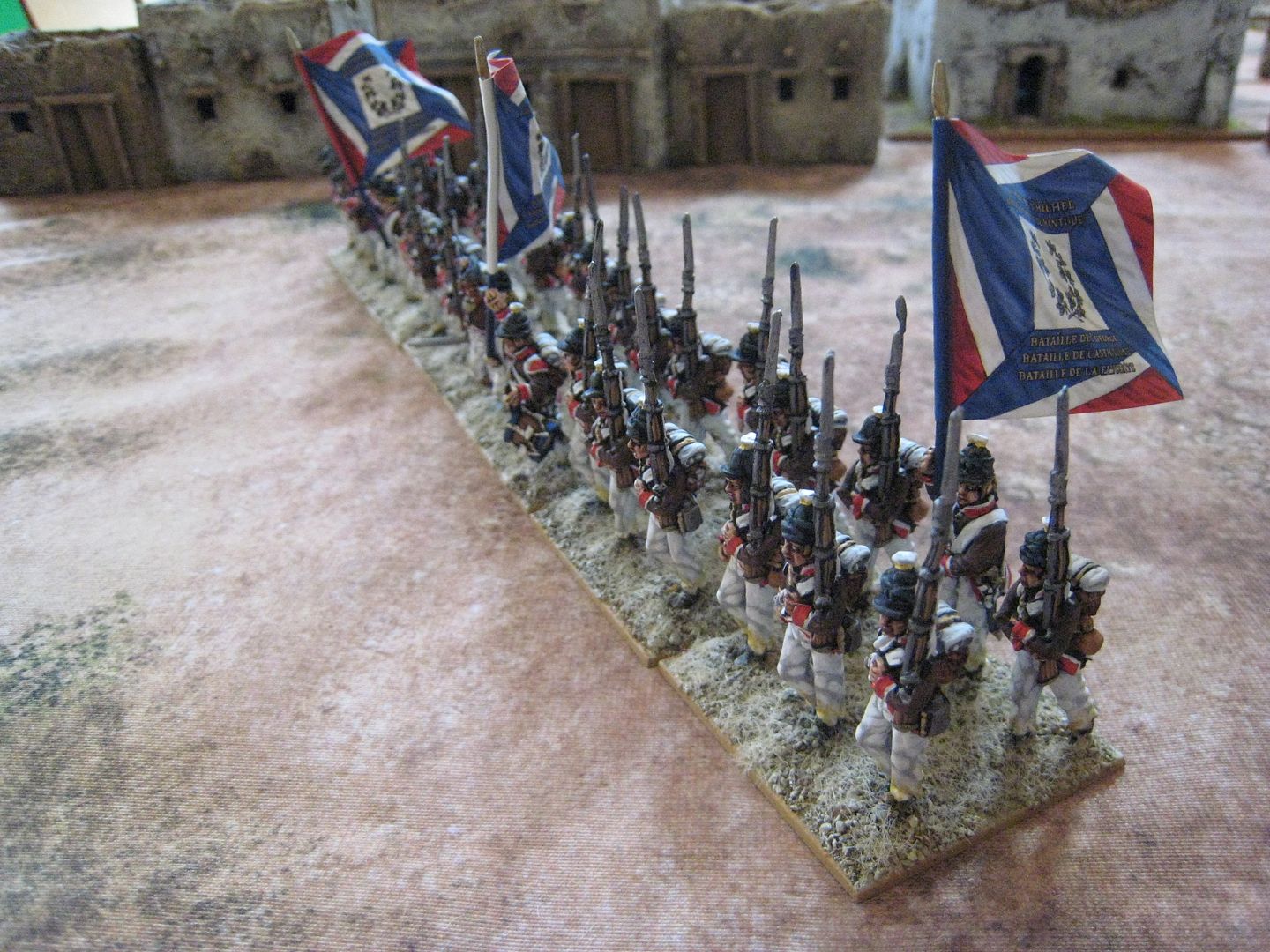
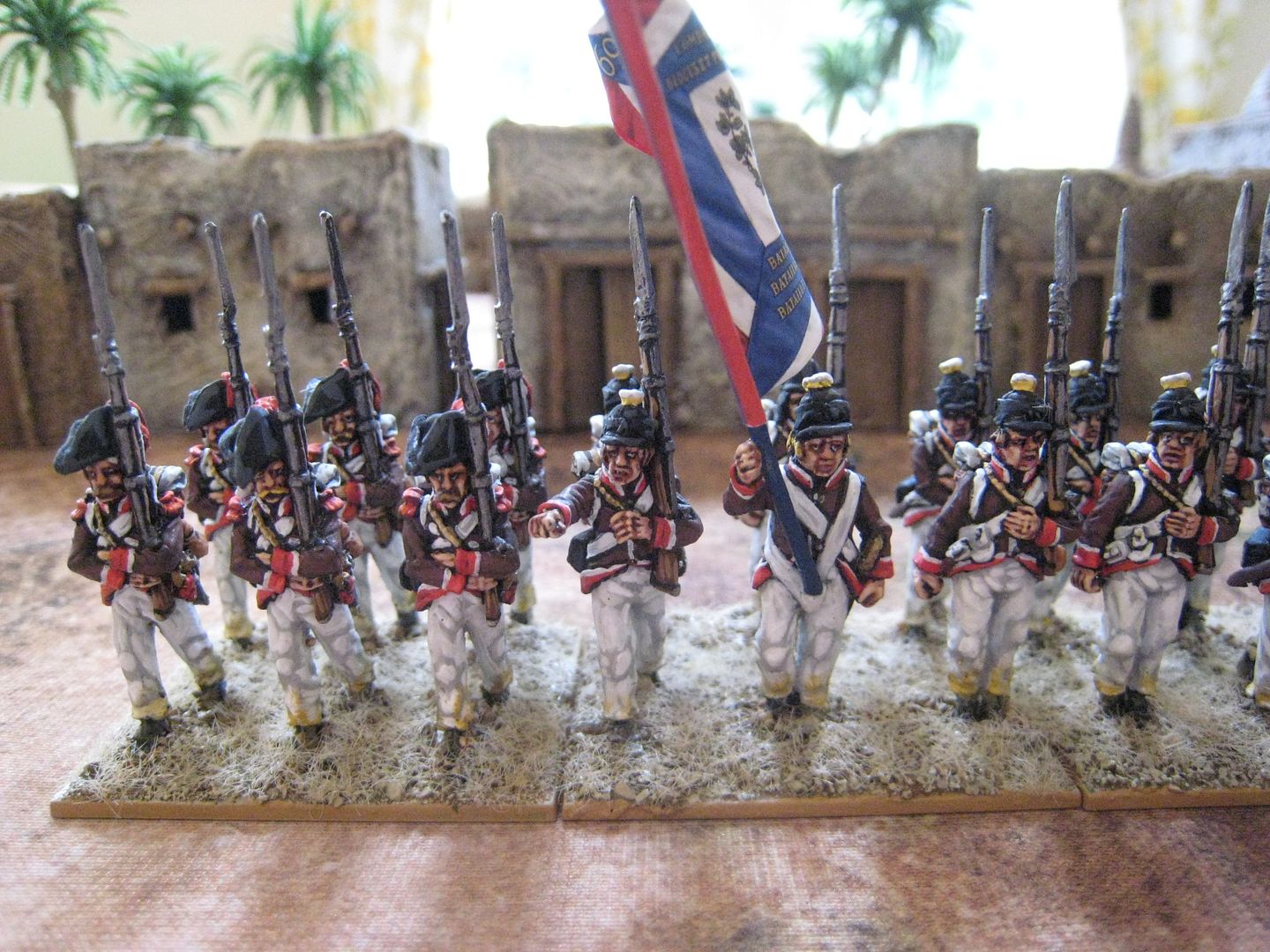
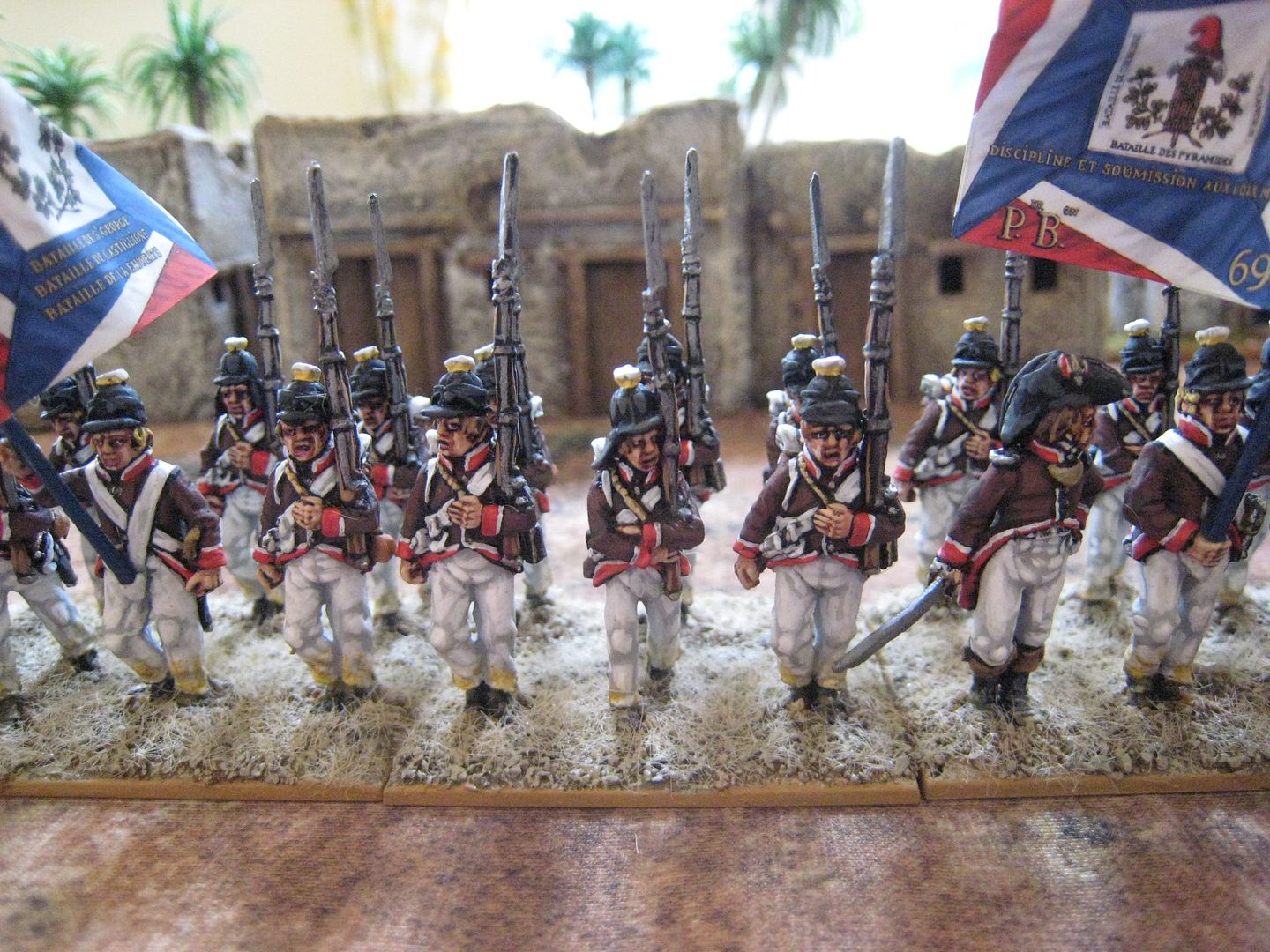
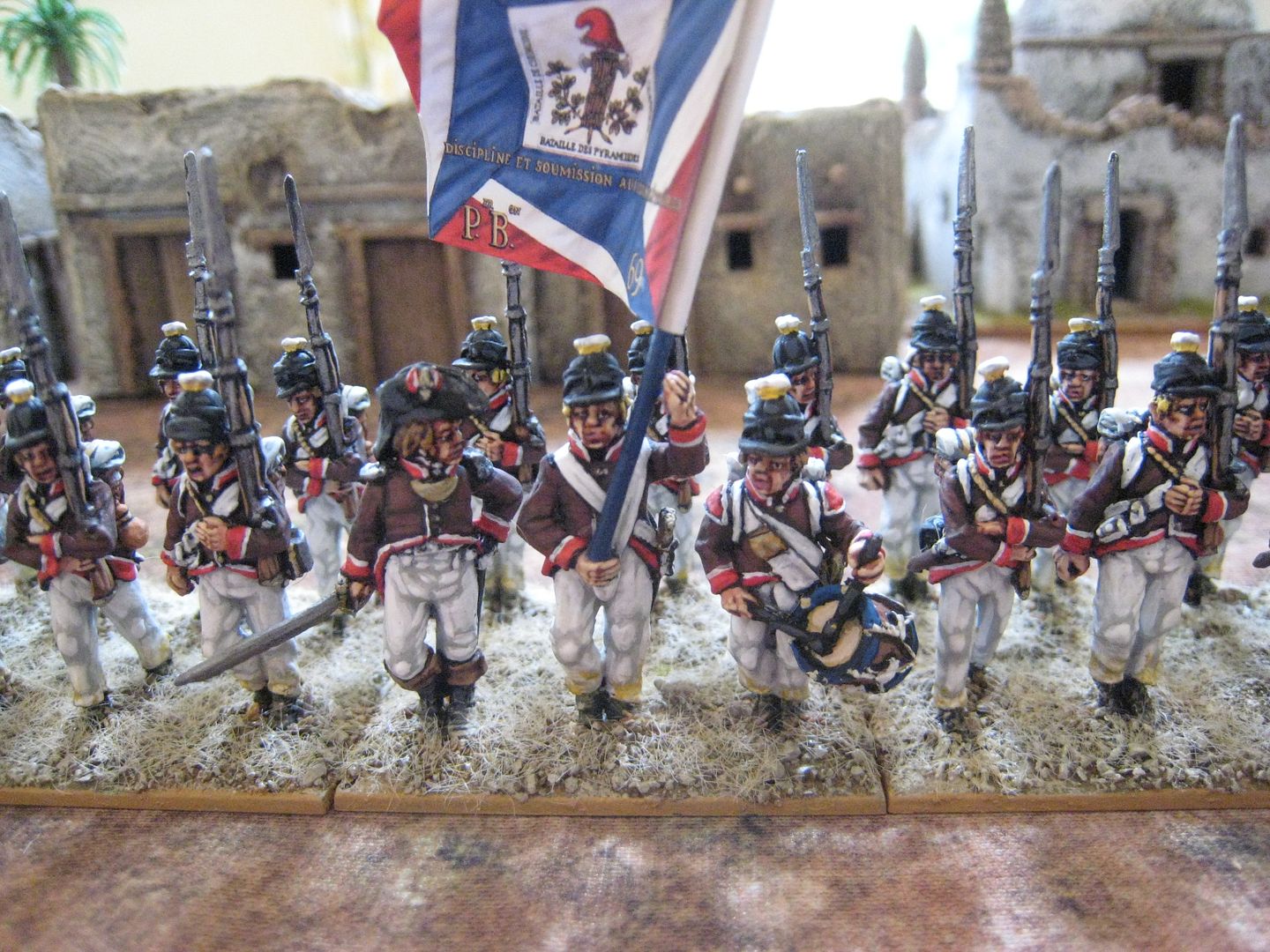
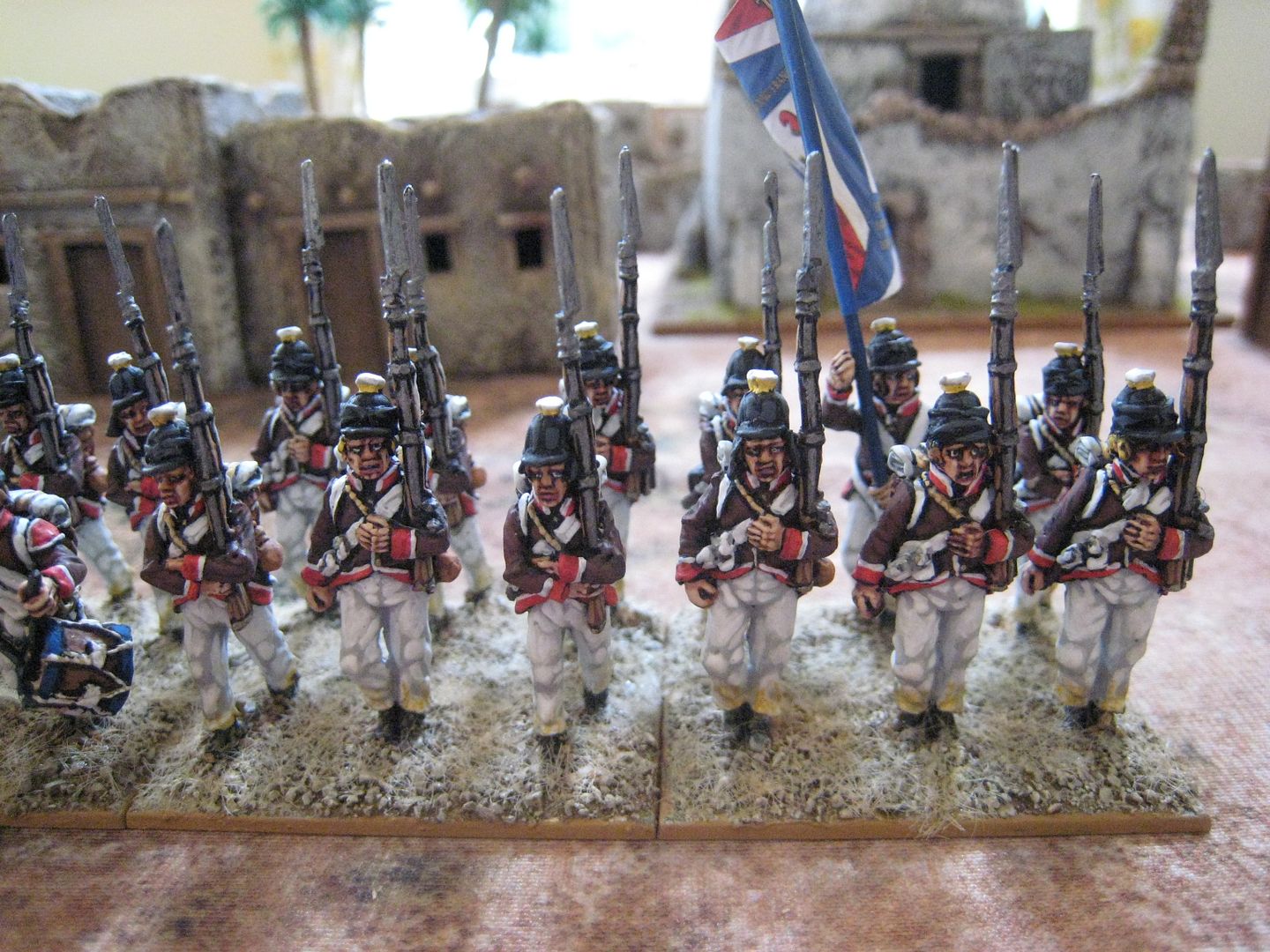
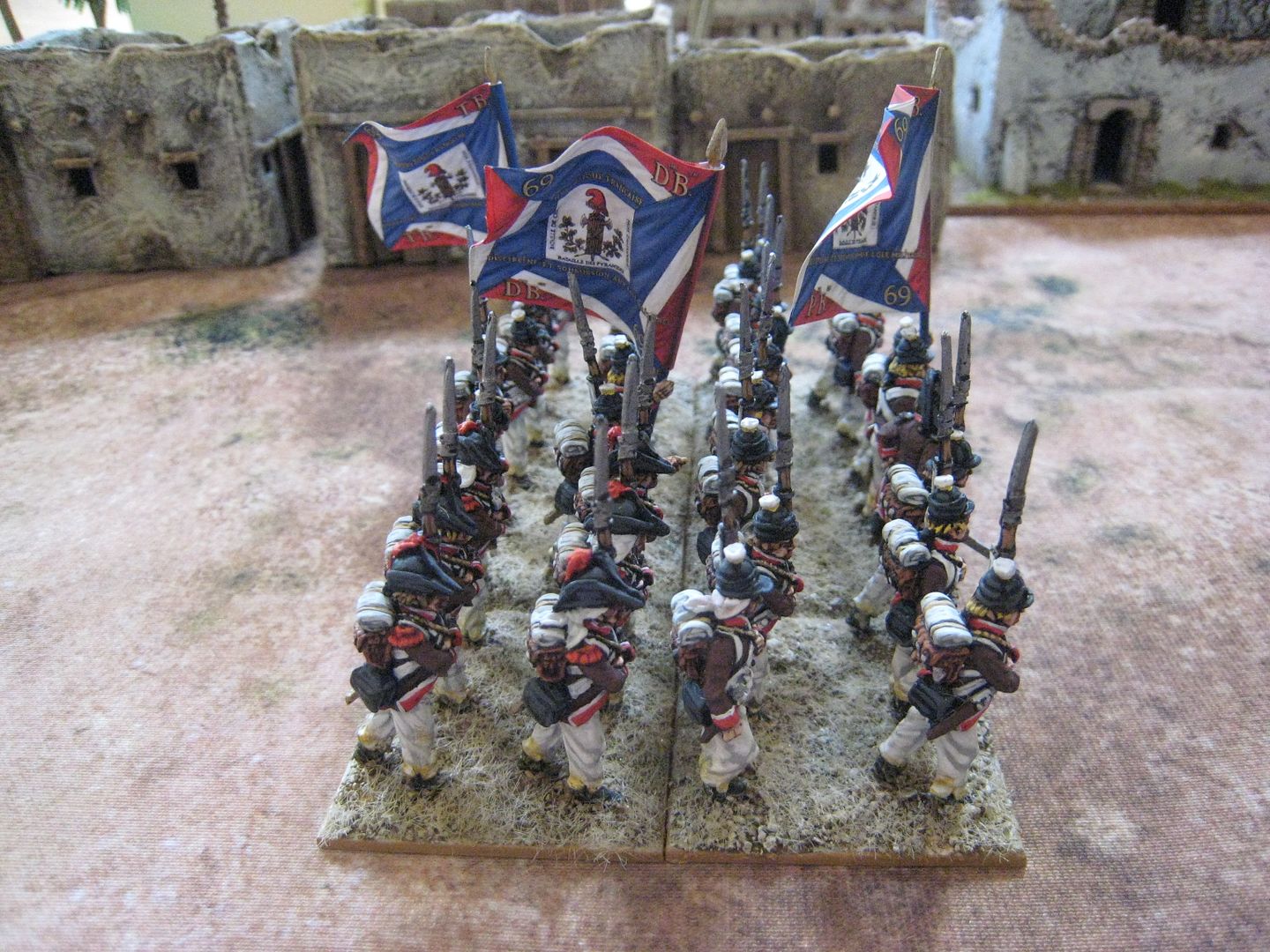
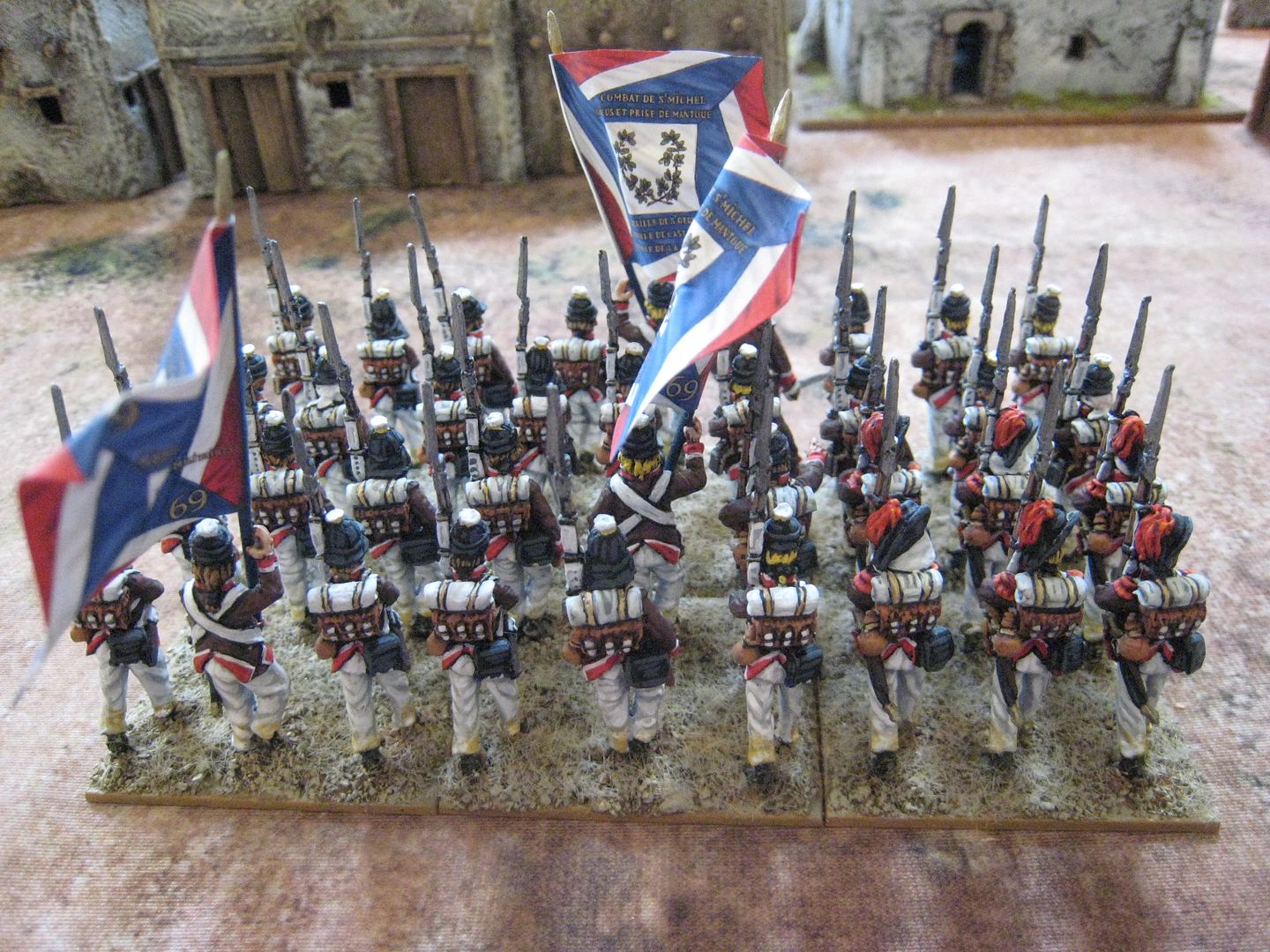
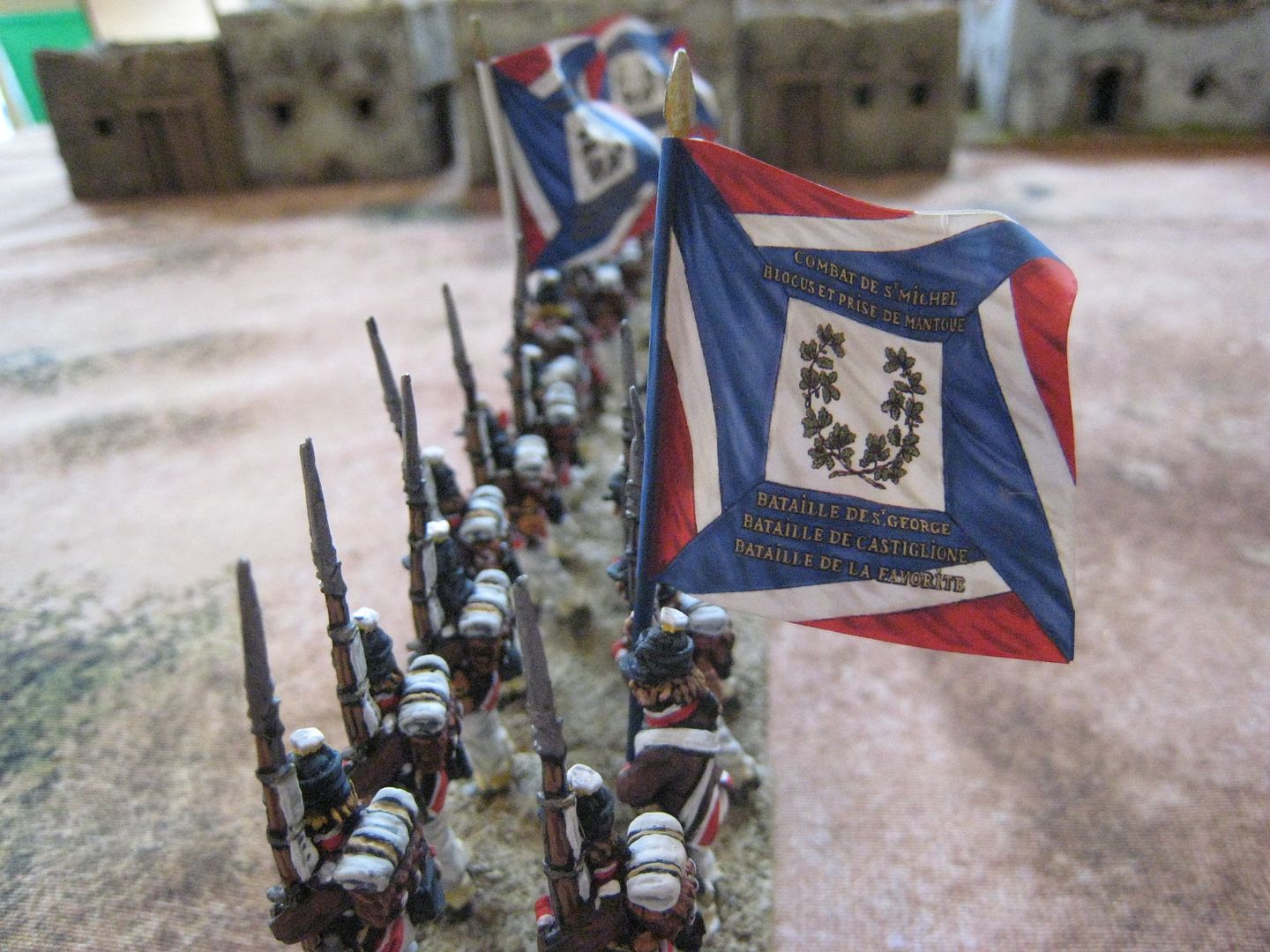
8 comments:
Love it!!! I'm very tempted to do this period. You've done an excellent job on the unit. Looking forward to seeing more.
Those are splendid Giles! Looking forward to seeing more.
Great looking unites Giles keep up the good work, all the best Airhead
What's not to love here!?! The terrain sets the scene nicely and subtle base work is simple, but perfect. Can't wait for the next installment. Regards, Mark
Simply gorgeous! Those really are lovely figures. What an interesting period of history too, and something a little different. I would love to re-fight Alexandria and understand the role my old regiment, the 28th (and LXI) played in the battle, especially the line turning back to back!
Best wishes,
Jason
I am so tempted to do a couple of armies suitable for use with DBN for this period and theatre.. you are not helping... :o))
Those are superb as usual Giles, its good to see that you're back painting and posting
Can't believe I've missed all your French in Egypt postings while I was away from my own blog (http://docsartofwar.blogspot.com/ - which I've now resumed!) As for suitable local opposition figures Lon Weiss' Brigade in the US have a range of Ottomans and Mamelukes (sculpted by the talented Paul Hicks) that fit the bill until Alan or Michael get around to it (which may be some time as they have no immediate plans now they've finished the British). In regards to useful information the absolute bible on the subject is Yves Martin's 'The French Army of the Orient 1798-1801 - Napoleon's Beloved 'Egyptians' published by Helion. The Perry's used Yve's research in French Armee archives which unearthed actual samples of the cloth used for the Kleber uniforms. Anyway, beautiful painting as always.
Regards, Doc
Post a Comment